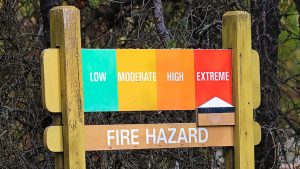The Workplace Safety and Insurance Board’s move to mandatory coverage for independent operators and others in construction as of Jan. 1, 2013 is seen as good news to Local 675 — the Drywall Acoustic Lathing and Installation union in Toronto.
The Workplace Safety and Insurance Board’s move to mandatory coverage for independent operators and others in construction as of Jan. 1, 2013 is seen as good news to Local 675 — the Drywall Acoustic Lathing and Installation union in Toronto.
Tony Iannuzzi, the Local’s president, says it will narrow the competitive gap between union and non-union contractors in the drywall sector.
In the Greater Toronto Area there are four or five well-known non-union drywall contractors with workforces “deemed to all be self-employed,” or independent contractors, Iannuzzi points out.
Related:
Ontario to extend workers’ compensation in construction
Council of Ontario Construction Associations: Comprehensive review of costs needed at WSIB
New Ontario Workplace Safety and Insurance Board law will level the playing field: OCS
“The employer doesn’t pay ‘workman’s comp’ and all those pieceworkers are considered to be self-insured. Some of our guys have been losing work to non-union contractors because the cost of our (WSIB) premiums is huge, bringing up the overall costs to complete projects.”
The new rules are projected to affect upwards of 90,000 construction workers in Ontario.
All unionized drywallers, whether working for piecework or on an hourly basis, have an agreement in place that requires their employer-contractors to pay WSIB premiums, explains Michael Farago, Workers’ Compensation Representative, Carpenters’ District Council of Ontario (CDCO), which represents carpenters union locals across the province.
Above-board contractors have long complained that the underground economy (UE) has taken a big chunk of their business. Will the new WSIB rules take a serious stab at the issue?
Opinions vary but the WSIB has indicated that contractors working for cash undermine the compensation system.
“What they mean is that when not enough employers are paying into the system, then the financial well-being of the system is compromised,” says Farago.
He says that within the CDCO, the mandatory coverage will impact shingling, siding and lowrise trim workers, which are usually employed in crews.
“Generally speaking, those currently classified as independent operators, or those contractors who employ crews will be most affected,” he points out.
“In the past, crew leaders did not require WSIB because they employed other workers. Now, the crew leader will — subject to exemptions — require coverage,” Farago says.
In a business where a partnership is running a crew, one of the partners may be exempt from WSIB coverage if that partner doesn’t “work on the tools,” explains Farago.
According to the WSIB website, the policy states, a partnership or corporation may elect one partner or executive officer from exemption of coverage if that person doesn’t do any construction.
There is another exemption to the mandatory coverage for home renovators working on an existing private residence that is or will be occupied by the person hiring the contractor, according to the website.
The contractor could be hired by a family member of the homeowner as well.
WSIB premiums are based on the average rate for the rate group. Different sectors of construction pay different rates, based on risk of injury and the past accident experience.
For example, the formwork and demolition sector has a premium rate of $17.86 per $100 of payroll which is the highest rate in construction.
By comparison the premium rate of legal and financial services is only 21 cents, according to the 2012 premium rates table listed on the WSIB’s website.
Individual employers’ premiums are also based on the claims history of the employer. The WSIB usually considers the number of lost-time injuries and the total cost of the claims against an employer when calculating the employer’s WSIB premiums, says Farago.
The new coverage rules will be only as good as their enforcement, state various industry stakeholders.
Industry experts say that WSIB auditors will be required and possibly a reporting hotline. Others suggest the WSIB provide workers with WSIB identification cards. For more information visit www.beregisteredbeready.ca.










Recent Comments
comments for this post are closed